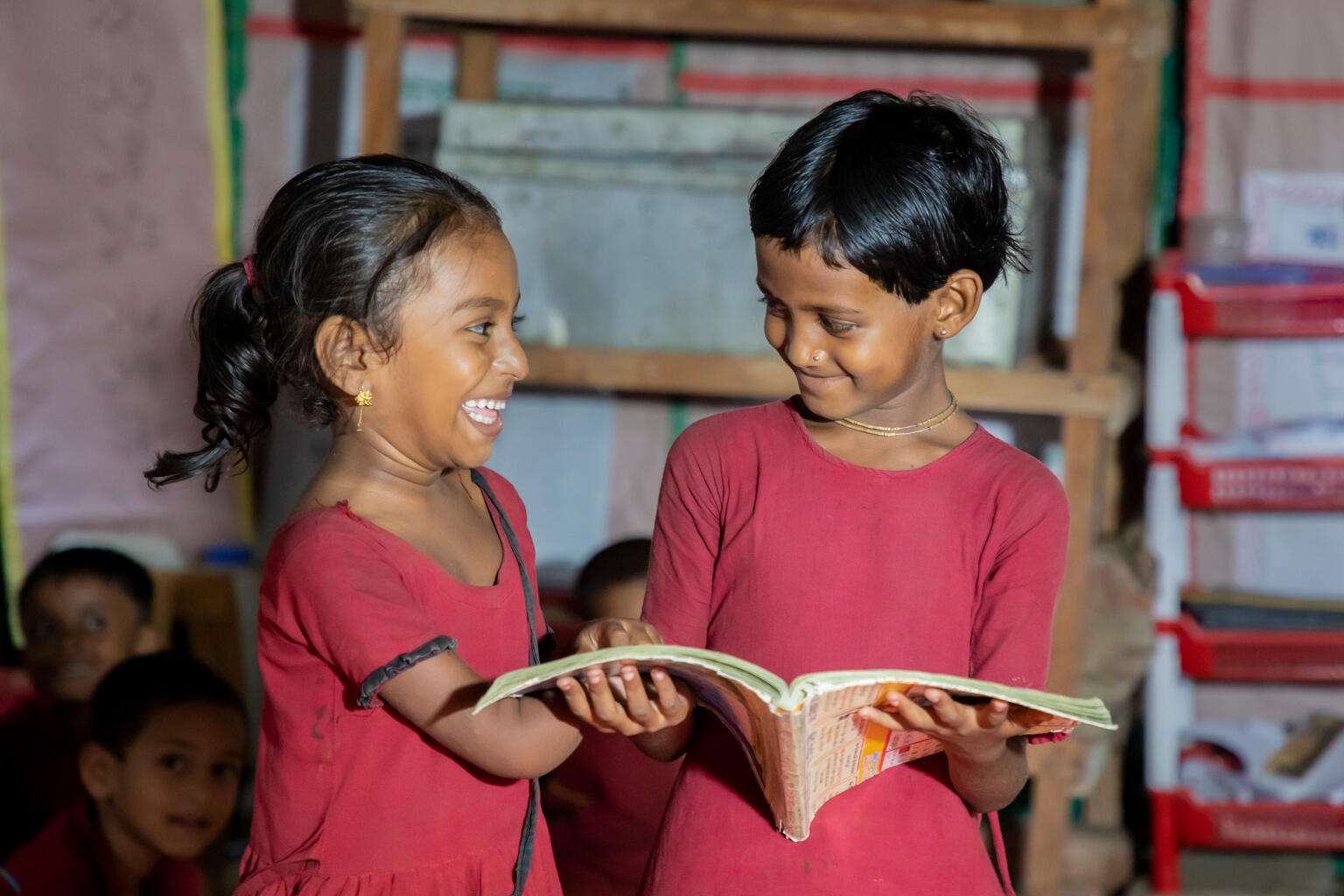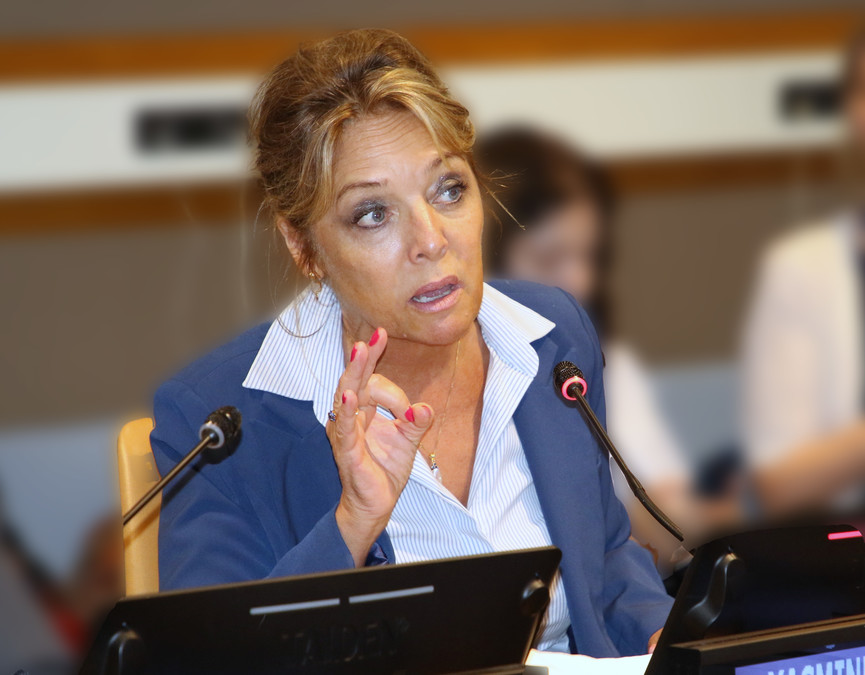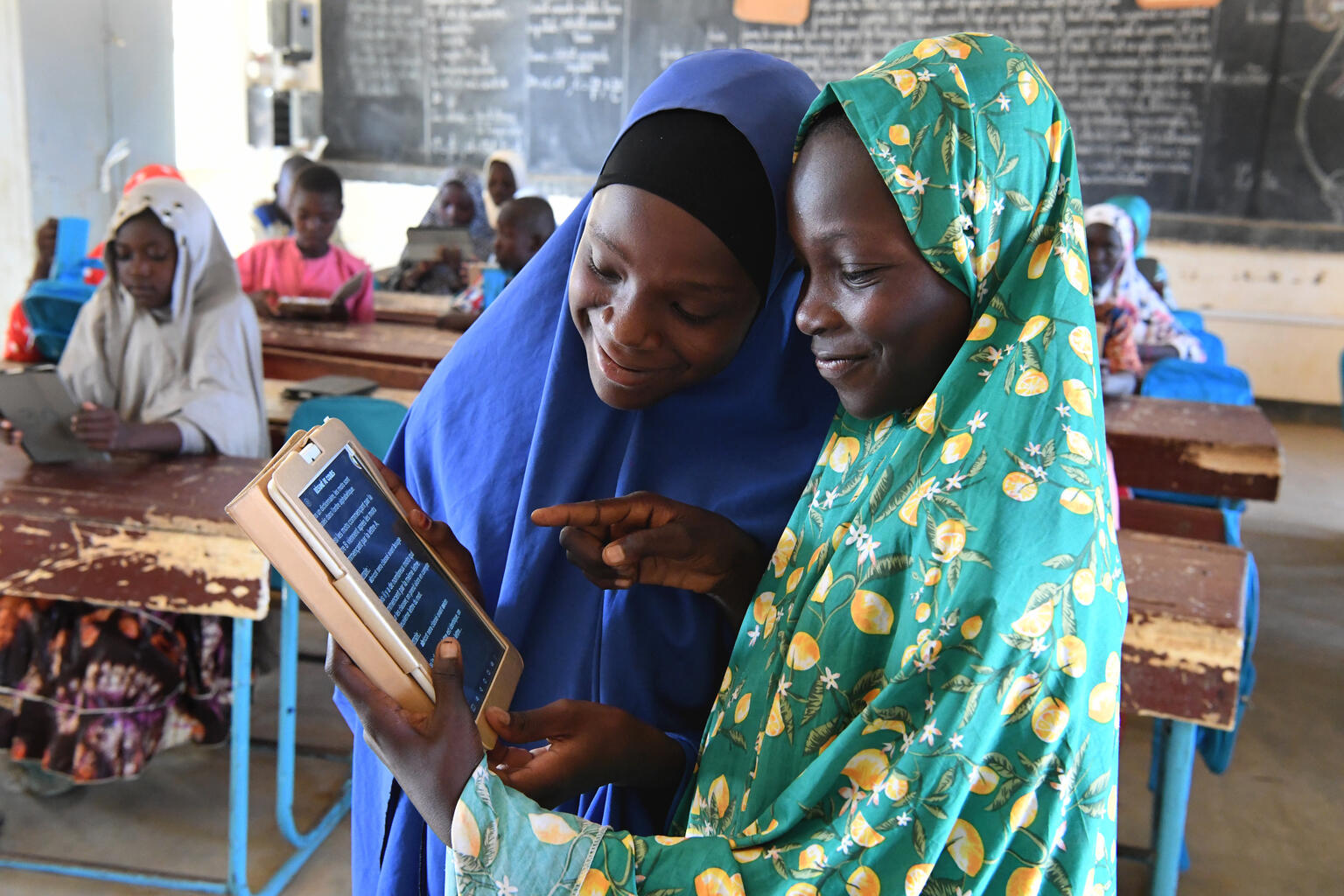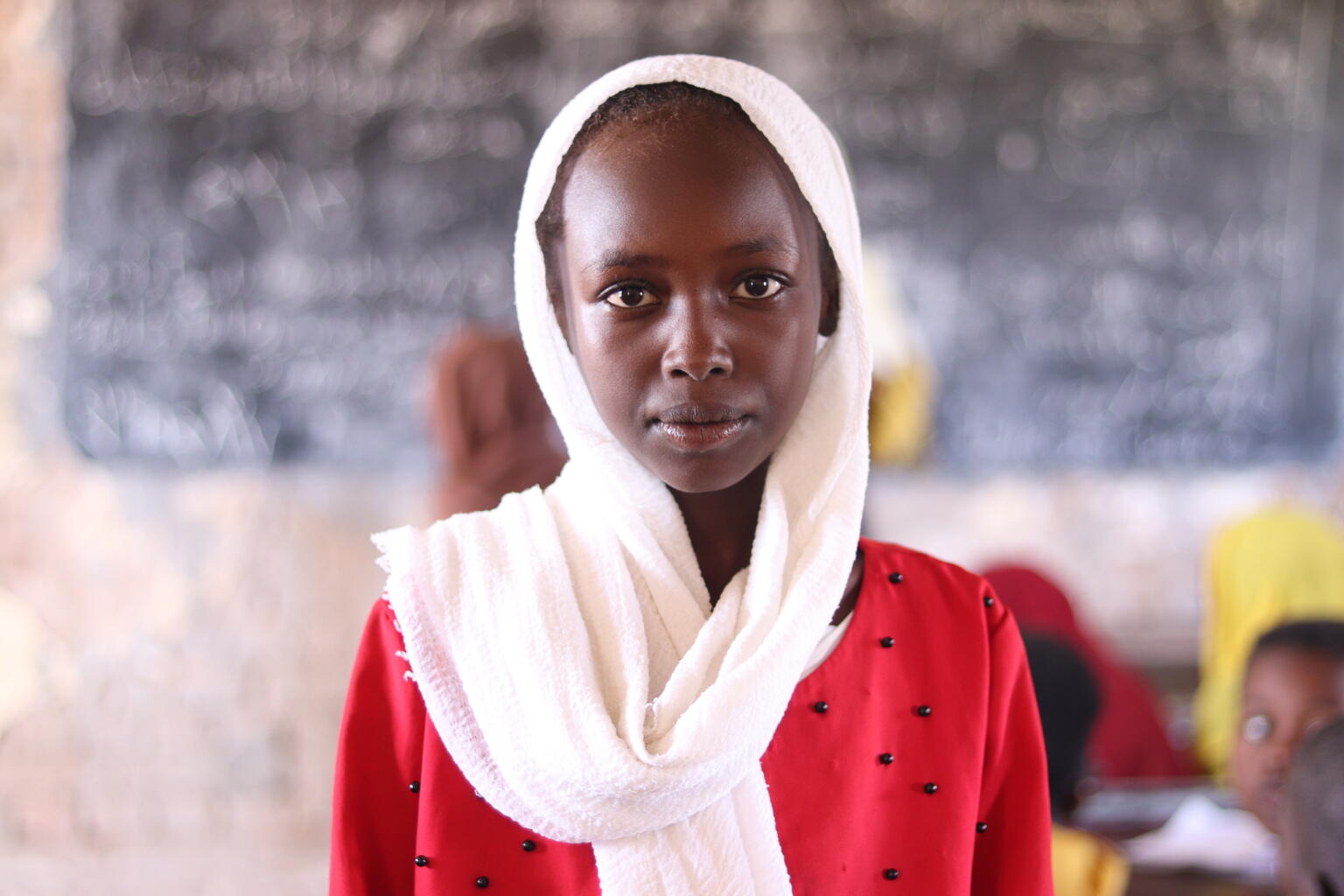International Day of Persons with Disabilities Statement by Education Cannot Wait Executive Director Yasmine Sherif

Putting disability inclusion at the forefront of our promise to leave no child behind in crisis settings.
On the International Day of Persons with Disabilities, we are reminded of our shared responsibility to uphold the promise of leaving no one behind. Today, millions of children with disabilities living in crisis-affected areas are urging us to make this promise a reality. Worldwide, disability is one of the most critical areas of marginalization. For children enduring armed conflict, forced displacement, climate-induced disasters and other protracted crises, this exclusion is further magnified.
Out of the 224 million children and adolescents in crisis settings who urgently need quality education, over 22 million are children with disabilities. Intersecting factors such as gender, geographical location and socioeconomic conditions exacerbate vulnerabilities and compound their exclusion. For instance, in the majority of countries in sub-Saharan Africa, less than 5% of children with disabilities attend primary school. In times of crisis, girls with disabilities also face heightened risks of abuse, violence, and exploitation – both within and outside learning spaces.
Inclusive education is not only a moral imperative but a cornerstone for achieving Sustainable Development Goal 4 (SDG4) on universal education. Inclusive learning spaces empower children with disabilities to thrive academically, socially and emotionally. In crisis settings, however, education systems are overstretched and too often lack essential resources to provide quality education. Very few learning environments are accessible and equipped to meet the diverse needs of learners with disabilities.
As the global fund for education in emergencies and protracted crises in the United Nations, Education Cannot Wait (ECW) is committed to breaking these barriers by ensuring safe, inclusive and adapted educational opportunities. Our Strategic Plan 2023-2026 commits to reaching 10% of children with disabilities across our programme portfolio.
Working with our strategic partners, we ensure mainstream programmes are inclusive of all learners while also supporting targeted interventions to address the specific needs of children with disabilities. This twin-track approach is further strengthened by collaborating with local organizations of persons with disabilities during the planning and implementation of programmes.
In 2023, ECW investments reached 5.5 million children in crises around the globe, of whom over 110,000 identify as having a disability. From Afghanistan, Bangladesh, Central African Republic, Chad, Ecuador, Yemen and beyond, ECW investments are transforming the lives of children with disabilities in some of the most challenging crisis contexts.
Together with our partners, we provide holistic support including assistive technologies, specialized stationery and educational tools, physical, occupational, speech and language therapies, transportation to and from school, accessible infrastructures, and community awareness activities. Globally, our disability-inclusive programmes have also trained thousands of teachers to employ adaptive teaching methods, making classrooms welcoming for all learners. For 13-year old Aisha in Nigeria, this means being able to go to school, learn and play like other girls and boy for the first time in her life. For 18-year-old Ali in Syria this means being able to complete grade 12 and dreaming of his future as a lawyer.
Together with our strategic partners, we are achieving promising results. But this is not enough. We must scale up investments in inclusive education for children with disabilities in crisis settings. This requires bold leadership, innovative partnerships, and sustained commitment from governments, donors and civil society.
The third Global Disability Summit – hosted by the International Disability Alliance (IDA), the Government of Germany and the Government of Jordan in Berlin in April 2025 – will be a key opportunity to reaffirm our global commitment and accelerate collective action to reach children with disabilities and work hand-in-hand with persons with disabilities to ensure we leave no learner behind in crises.




